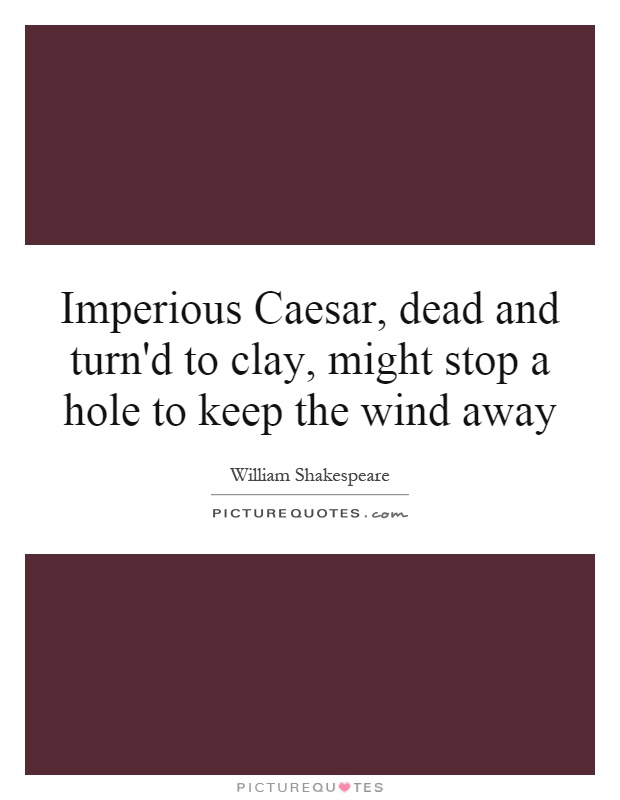Imperious Caesar, dead and turn'd to clay, might stop a hole to keep the wind away

Imperious Caesar, dead and turn'd to clay, might stop a hole to keep the wind away
In William Shakespeare's play Hamlet, the character of Hamlet speaks these words in Act 5, Scene 1, during a conversation with Horatio in the graveyard. The line "Imperious Caesar, dead and turn'd to clay, might stop a hole to keep the wind away" reflects Hamlet's contemplation of mortality and the impermanence of power and greatness.The reference to "Imperious Caesar" alludes to Julius Caesar, the Roman emperor who was assassinated by his own senators. Caesar was a powerful and influential leader, yet even he could not escape death. Hamlet uses this example to illustrate the idea that no matter how great or powerful a person may be in life, in death they are reduced to mere dust and clay. The image of Caesar's body being used to "stop a hole to keep the wind away" is a stark reminder of the ultimate fate that awaits all individuals, regardless of their status or achievements.
This reflection on mortality is a central theme in Hamlet, as the play explores the consequences of death and the fragility of human life. Throughout the play, Hamlet grapples with the idea of mortality and the inevitability of death, as he contemplates his own existence and the legacy he will leave behind. The line "Imperious Caesar, dead and turn'd to clay, might stop a hole to keep the wind away" serves as a poignant reminder of the transience of life and the fleeting nature of power and greatness.
Shakespeare's use of language in this line is particularly striking, as he juxtaposes the grandeur of Caesar's title with the mundane image of his body being used to block a hole. This contrast highlights the disparity between the outward appearance of power and the reality of death, emphasizing the idea that all individuals are ultimately equal in death. Through this line, Shakespeare invites the audience to reflect on their own mortality and the legacy they will leave behind, reminding them of the impermanence of power and the inevitability of death.












 Friendship Quotes
Friendship Quotes Love Quotes
Love Quotes Life Quotes
Life Quotes Funny Quotes
Funny Quotes Motivational Quotes
Motivational Quotes Inspirational Quotes
Inspirational Quotes